Posted by Brent Modzelewski on July 12, 2020
The Usual Suspects
Noble Grape Varietals
There are arguably many differing opinions on which varietals are considered Noble Grapes. But what is a Noble Grape?
In layman's terms, Noble Grapes are high quality and widely grown internationally, used to make the most popular and recognizable single varietal wines.
There is no classification requirements or official status of being a Noble Grape, so don't take the name too seriously.
There are 6 varietals that would make anyone's list of Noble Grapes:
Chardonnay, Sauvignon Blanc, Riesling, Merlot, Cabernet Sauvignon and Pinot Noir.
These 3 white and 3 red varietals cover the spectrum of wine flavor and aroma profiles. If you are a movie buff and wine drinker, enjoy the movie references.
Chardonnay, Sauvignon Blanc, Riesling, Merlot, Cabernet Sauvignon and Pinot Noir.
These 3 white and 3 red varietals cover the spectrum of wine flavor and aroma profiles. If you are a movie buff and wine drinker, enjoy the movie references.
Chardonnay (shaar-duh-nei)
(Dean Keaton - can be both subtle and bold depending on location) Chardonnay is a unique white grape varietal originating in Burgundy France. It thrives in both cool and warm wine climates. Crisper, medium acidic medium-bodied Chardonnays are expected from cool climates, like northern Burgundy France (e.g. Chablis), Pacific Northwest US (Oregon, Washington and Northern California), Australia and Chile. Cool-climate Chardonnays deliver fruit flavors and aromas of lemon, green apples, stone fruits, such as under-ripe peaches as well as notes of minerality. More often than not, these cool-climate Chardonnays are not aged in oak as to not have the oak over-power the delicate fruit flavors. Warm climates like California, South Australia and South Africa produce fruiter bolder full-bodied Chardonnays. The warmer regions will yield more tropical fruits like pineapple, mango, passionfruit, papaya and ripe peaches. Riper fruits come from warmer climates, meaning more sugar in the grape, translating into higher ABV compared to the cooler-climate chardonnays.Sauvignon Blanc (so-vee-nyohn blahnk)
(Verbal Kint - the wine that brings everyone to the table but you didn't know it) A white varietal originating in Bordeaux France that grows in cooler climates making a wine with higher acidity. Telltale aromas and flavors of citrus fruit, most commonly lemon, lime and grapefruit. Depending on where the wine is coming from, Sauvignon Blancs can take on flavors of guava, passionfruit, honeydew and gooseberry. Sauvignon Blanc is a light-bodied wine and is not typically oaked nor does it go through MLF (If you don't know what MLF is, checkout this blog post Butter Side Down). Instead of red wine, try Sauvignon Blanc with your next charcuterie board, you'll be surprised. I call this the gateway white wine for red wine drinkers.Riesling (ree-sluhng)
(Kobayashi - Have limited contact not knowing if it is sweet or not) Originating in Germany, Riesling remains very popular. As you are probably aware, many wine producers lean toward making sweet Rieslings. Don't let that dissuade you, bone dry Rieslings are available most anywhere, just check the label for dry or the German word trocken. Young Rieslings are known for their rich stonefruit flavors of peaches, apricots, nectarines and even pears and red apples. As Riesling ages it gets darker in color and develops aromas of gasoline (petrol) and beeswax, but not in a bad way. The grapes themselves are mostly white with red freckles. If left on the vine longer they develop darker skin. So don't be surprised if you see a pink-colored Riesling.Merlot (mr-low)
(Michael McManus - Bad reputation (from another movie) but is actually quite good on its own. I mean the wine, not Stephen Baldwin, but it might apply to him too. In my opinion Merlot has been unfairly judged since the movie Sideways. Merlot is a Bordeaux red varietal, with medium acidity, medium tannins and is medium to full-bodied. Very fruit-forward with intense aromas and flavors ranging from red fruits (i.e. strawberry, raspberry) from cooler climates to black fruits (i.e. plum, black cherry, blackberry) from warmer climates. Although a fruity wine, it is not a sweet wine and is very often blended with Cabernet Sauvignon. As a single varietal wine, Merlot has a soft silky texture and makes for a very well rounded versatile wine that pairs well with many foods. This is a great stepping stone for people who are transitioning from Pinot Noir to Cabernet Sauvignon. Shhh...don't tell anyone that Merlot is one of the two main grape varietals of red Bordeaux blends. One of the most famous wines in the world is a Merlot,Petrus Pomerol.Cabernet Sauvignon (ka-br-nei so-vee-nyohn)
(Fred Fenster - can be high in acidity, tannins and alcohol to make you slur your speech) Cabernet Sauvignon originating in Bordeaux France is often referred to as "Cab" or "Cab Sauv" and known for its medium to high acidity and high tannins with deep black-fruit aromas and flavors of blackcurrant, blackberry and black cherry. Depending on where it is grown and how it is produced, it can also have flavors of vanilla, tobacco, chocolate, coffee and baking spices, as well as vegetal notes, such as dill, green pepper and mint. Due to the high levels of tannins and acidity, Cabernet Sauvignon can be aged for a long time. If you are drinking a young Cabernet Sauvignon, it will benefit from decanting to soften the wine and bring out the flavors and aromas.Pinot Noir (pee-noh nuh-waar)
(Todd Hockney - small but can pack a punch) Pinot Noir originated in Burgundy France and remains the primary red grape of the region. Unlike the easy to grown white grape (Chardonnay) of Burgundy , Pinot Noir is a finicky varietal making it difficult to grow quality Pinot Noir grapes, mostly due to its thin skin and sensitivity to climate. The cooler climate and the thin skins yield a wine with low tannins, a pale ruby color bordering on brown, lower ABV, less intense flavor with higher acidity. You can expect red fruits, like cherry, raspberry, strawberry and cranberry flavors. Pinot Noirs from Burgundy have distinct earthy notes of mushroom and forest floor. Oregon Pinot Noirs mimic the Old World style of Pinot Noir and share in that earthiness, whereas other New World Pinot Noirs tend to have more fruit flavors and less earth.
Wine Nerd Fact Information
If Sauvignon Blanc and Cabernet Franc had a baby, what would it be? Cabernet Sauvignon.
That's right, Cabernet Sauvignon is the offspring of Sauvignon Blanc and Cabernet Franc.
But wait, there's more. Cabernet Franc is also the parent to Merlot.
Wine2Oh Recommended Wine
This month there are 12 recommended bottles of wine. Two from each of the Nobile Grapes. There is an entry level choice and the Wine2Oh favorite of each varietal.
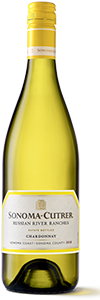
You are California dreaming with the wonderfully balanced Chardonnay.
Sonoma-Cutrer Chardonnay
Russian River Ranches
Crisp citrus flavors and aromas layered with pear and green apple and delicate notes of spice. Available at liquor stores and wine shops for $25.
Chardonnay

You are California dreaming with the wonderfully balanced Chardonnay.
Sonoma-Cutrer Chardonnay
Russian River Ranches
Crisp citrus flavors and aromas layered with pear and green apple and delicate notes of spice. Available at liquor stores and wine shops for $25.
Chardonnay
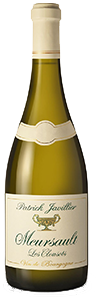
This style of Chardonnay from Burgundy is the biggest boldest richest white wine money can buy.
Patrick Javillier Meursault
Les Clousots
Full bodied, buttery, rich ripe apples, tropical fruits with nutty and oaky notes. Worth every penny of the $75 price-tag.
Sauvignon Blanc
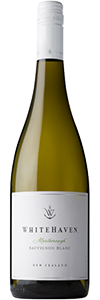
Classic New World Sauvignon Blanc from Marlborough New Zealand.
White Haven Sauvignon Blanc
Bright citrus aromas with notes of grapefruit and guava. Can find at most wine shops for about $15.
Sauvignon Blanc
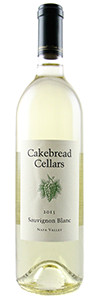
Not the usual wine coming from Napa Valley, this Sauvignon Blanc is one of the best you will find in the land known for Cabernet Sauvignon. Excellent winery to visit.
Cakebread Sauvignon Blanc
Napa Valley
Crisp aromatic grapefruit with flavors of citrus and melon with a touch of minerality. Fantastic buy at $28.
Riesling
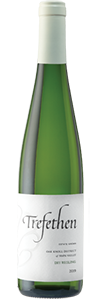
Napa Valley Dry Riesling with low ABV of 12%. Another beautiful tasting room in Napa Valley.
Trefethen Dry Riesling
Light bodied, slightly floral with orange peel, green apple and citrus notes. For only $26 you will have a great New World dry Riesling.
Riesling
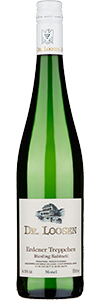
Off-dry Riesling from Mosel Germany.
Dr. Loosen
Erdener Treppchen Riesling Kabinett
A touch of sweetness balances out the minerality with notes of floral, green apple and lime. Will not break the bank at $32.
Merlot
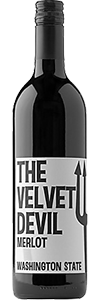
Don't let this basic label and price tag fool you. This Washington State Merlot by Charles Smith Wines is bursting with flavor.
The Velvet Devil Merlot
Velvety texture with aromas and flavors of blackfruit, black currant and tobacco. Find it for around $10 almost anywhere.
Merlot
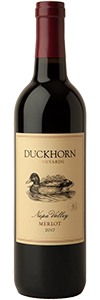
Duckhorn does a fantastic job with their Merlot blending it small percentages of other varietals like Cabernet Sauvignon, Cabernet Franc and Petit Verdot. Aged in French Oak adds layer of complexity.
Duckhorn Merlot
Napa Valley
Rich fruit forward flavors of plum and blueberry, backed by soft tannins and aromas of redfruits like cherry and raspberry. Long finish with hints licorice and spices. Depending on vintage ranges from $55-$60.
Cabernet Sauvignon
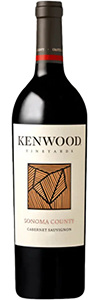
Kenwood has a suprisingly nice array of Cabernet Sauvignons from Sonoma County. This Cab is their entry level Cab and if you enjoy this one you should consider trying their better wines.
Kenwood Cabernet Sauvignon
Sonoma County
Ruby red and full-bodied with blackfruits like plum, black currant and fresh fig. Medium+ tannins finish nicely with barrel notes. Find it for about $15.
Cabernet Sauvignon
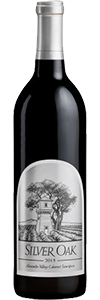
This Cabernet Sauvignon (aged exclusivly in American Oak) is exactly what you would expect from a California Cabernet Sauvignon. The Alexander Valley Cab from Silver Oak is less expensive than their Napa Valley Cabs. You can't lose with either AVAs, however I perfer the Alexander Valley.
Silver Oak Cabernet Sauvignon
Alexander Valley
Deep purple color with intense flavors blackberries, sour cherry, black pepper with notes of vanilla, dill and nutmeg. Ranges from $75-$95 based on vintage.
Pinot Noir
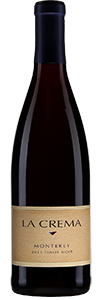
This Pinot Noir is a 100% Pinot Noir and is a classic California Pinot Noir.
La Crema Pinot Noir
Monterrey
Redfruits all the way with cherry, cranberry and raspberry with the earthiness of beets and notes of minerality and spice. Priced about $23.
Pinot Noir
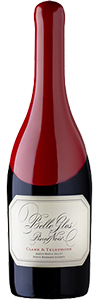
This elegant and delightful Pinot Noir will have you coming back to it over and over again. Don't worry, the wax dipped neck is easier to open that it looks.
Belle Glos Pinot Noir
Clark & Telephone
Full flavors of blueberry, cherry and cranberry blanketed with aromas of raspberry jam balanced nicely with notes of cedar and baking spices. Grab as many as you can when you find below $50.
Disclaimers: We are not affiliated, sponsored or funded for this blog post. It is purely for the love of wine.
Copyright Great Meadow Products, LLC. All rights reserved.
